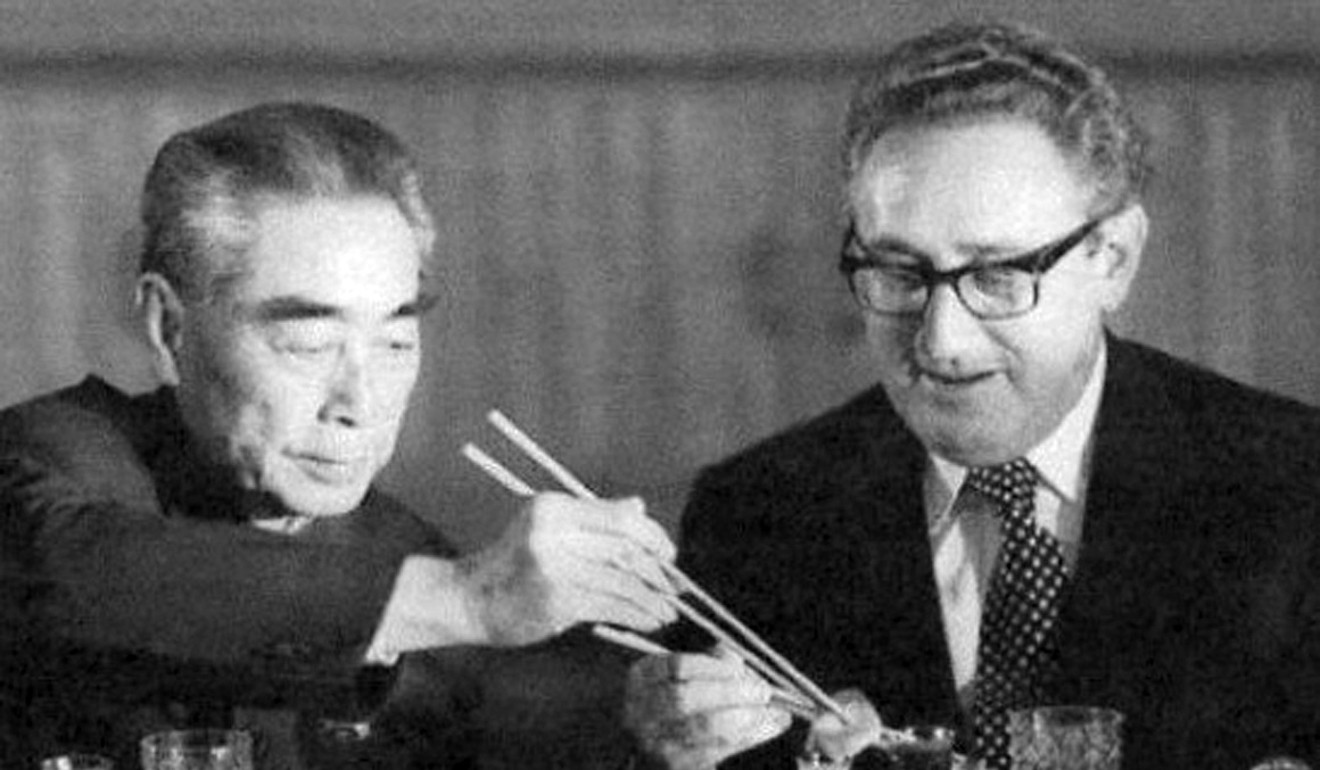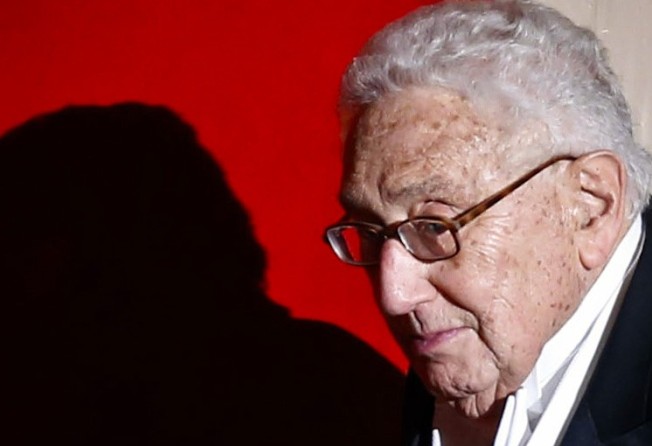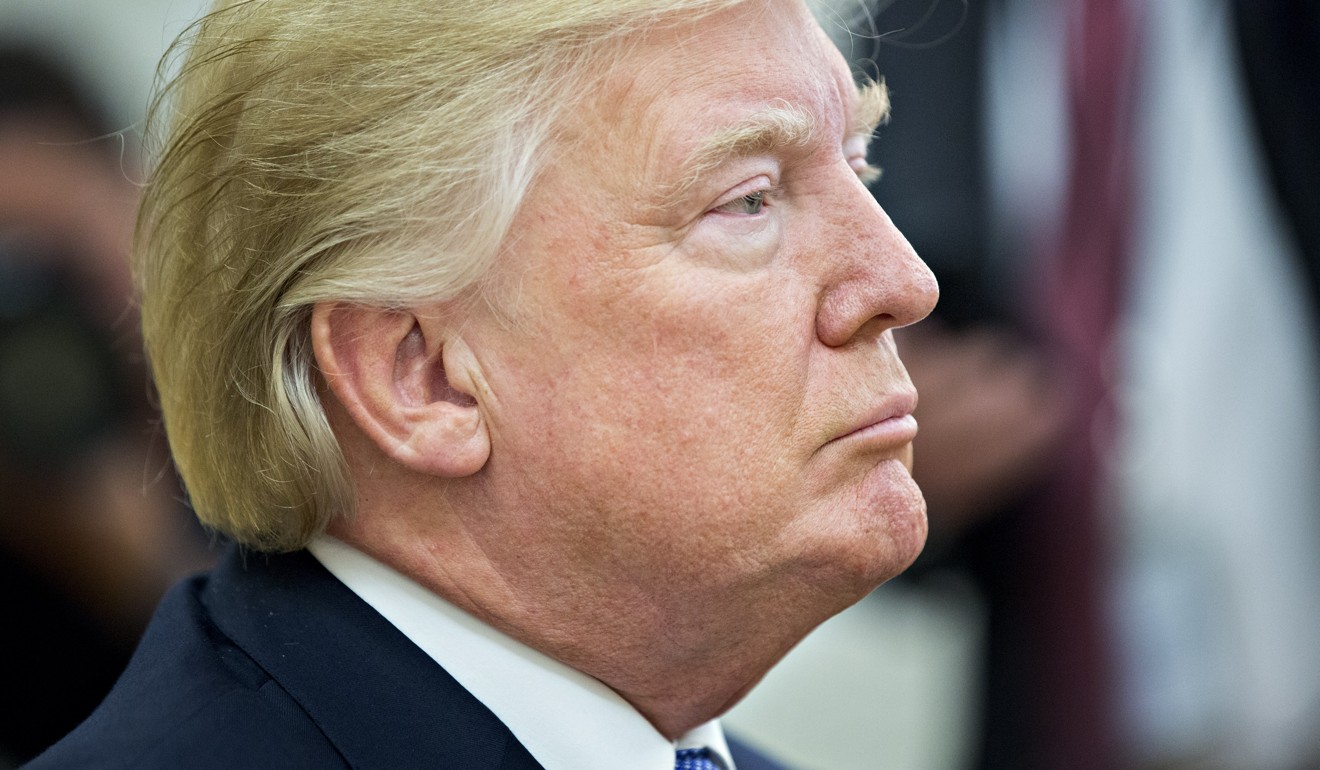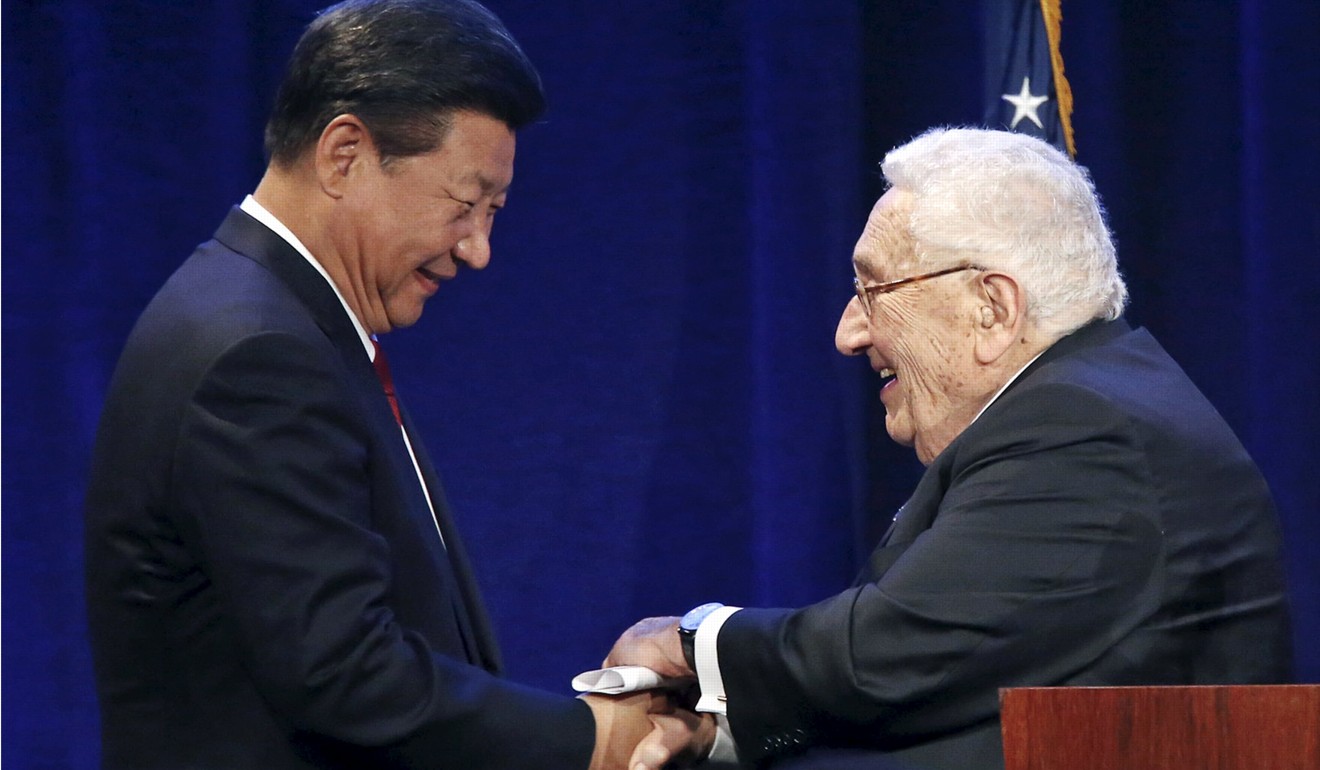
Henry Kissinger didn’t press Donald Trump to work with Russia to ‘box in’ China, institute says
Media reports dismissing a Daily Beast report as ‘pure fabrication’ are accurate, says the director of the Wilson Centre’s Kissinger Institute on China and the US

Elder US statesman Henry Kissinger’s namesake think tank has denied a media report saying the former top diplomat urged US President Donald Trump to “box in” China by working with Russia.
Recent reports by China National Radio and the Chinese-language version of China Daily calling a July 25 report by the Daily Beast “pure fabrication” are accurate, Robert Daly, director of the Wilson Centre’s Kissinger Institute on China and the United States, told the South China Morning Post. China National Radio and China Daily are official state media outlets.
Citing five anonymous sources familiar with the matter, the Daily Beast said: “The former secretary of state – who famously engineered the tactic of establishing diplomatic relations with China in order to isolate the Soviet Union – pitched almost the inverse of that idea to Trump during a series of private meetings during the presidential transition.”

However, a transcript of a September 13 event commemorating the Wilson Centre’s 50th anniversary, provided by the think tank, shows Kissinger denying that he had made the comments.
“I wish I had been invited, on some occasion, to tell President Trump, in front of the audience described, about my strategic views of that relationship,” the transcript quotes Kissinger as saying. “That particular article was a great piece – of fiction.”
“I visualise China as a potential partner in the construction of a world order,” Kissinger is quoted.
“Of course, if that does not succeed, we will be in a position of conflict, but my thinking is based on the need to avoid that situation. So, our problem is not to find allies around the world with which to confront China.”
The Daily Beast assertion comes at a time of heightened sensitivity in US-China relations. A bilateral trade war of unprecedented scope, which started in July, threatens more than US$500 billion a year of two-way trade.

Suspicion in Beijing that Washington is using punitive trade tariffs as part of a broader effort to contain China economically has helped to undermine progress in high-level, bilateral talks that have been convened since May but have not produced any breakthroughs.
China’s state media published a series of editorials and commentaries casting a harsher light on Sino-US relations in the weeks after the US Trade Representative’s office slapped a first round of tariffs on Chinese imports.
A signed commentary published by Communist Party mouthpiece People’s Daily on August 10 said the Trump administration had continued the “engagement plus containment” approach to China, hoping to significantly reshape China’s development in America’s image.
Another commentary by the overseas edition of People’s Daily on August 12 said the US was seeking hegemony, and China should be determined to fight.
Kissinger, who laid the groundwork for former US President Richard Nixon’s historic visit to China in 1972, has been among many high-profile advocates for more cooperation between Washington and Beijing.
He has even pushed the Trump administration to get more involved in the Belt and Road infrastructure initiative, the network of ports and transport links stretching from East Asia to Europe championed by Beijing.
Speaking at a Columbia University conference last year, which featured Chinese Vice-Premier Liu Yandong as a keynote speaker, Kissinger said the only alternative to positive relations between Washington and Beijing was global destruction.
“China’s Belt and Road Initiative, in seeking to connect China to Central Asia and eventually to Europe, will have the practical significance of shifting the world’s centre of gravity from the Atlantic to the Pacific and will involve the cultures of Eurasia, each of whom will have to decide what relationship to this region they will see, and so will the United States,” Kissinger said.
“It is said by many scholars that never before has a power grown in one region as China is doing and that its interaction will lead to tensions and maybe even war. We do not have this choice.
“That would be a road to the disaster and would do to the world what World War II did to Europe.”
Henry Paulson, who was the US treasury secretary under former US president George W. Bush, also has pushed for more diplomacy between Washington and Beijing.

Paulson convened in 2006 the first in a series of regular high-level meetings between US and Chinese officials, also known as the “strategic economic dialogue”.
The meetings have continued under slightly different names into the first year of Trump’s presidency.
Paulson’s dialogue with China was meant to “ensure leaders of the two countries can address critical economic challenges facing their economies, have a forum for discussing cross-cutting issues, and can make the most productive use of the existing bilateral commissions and dialogues”, according to a treasury department fact sheet.